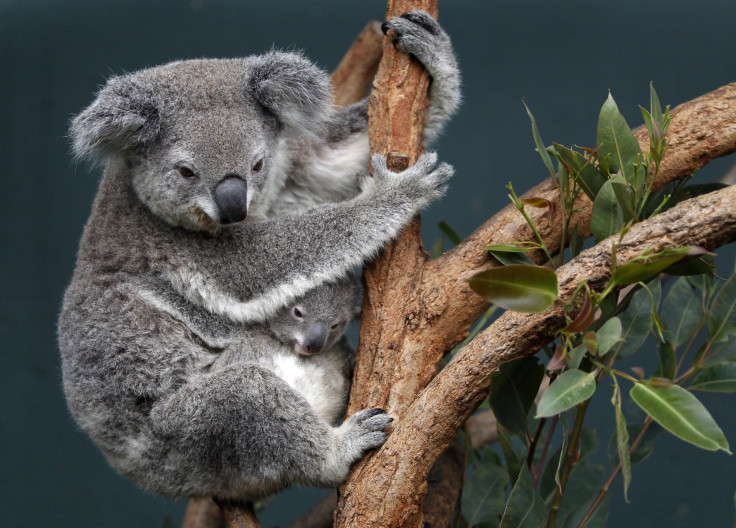Koalas Hug Cool Trees To Cope With Extreme Heat: Study

Koalas hug trees not only to avoid falling but also to remain cool in extreme heat, according to a new study that is expected to contribute toward koala conservation efforts and to help better understand the effects of climate change on animals.
The new study, conducted by researchers at the University of Melbourne, used thermal images to reveal that koalas cope with extreme heat by resting against cooler tree trunks. The researchers examined the behavior of 30 koalas during hot weather at French Island, located in Western Port, nearly 38 miles southeast of Melbourne, and found that while the animals pant and lick their fur to cool down, they also cuddle tree trunks when they are hot and exhausted.
“We found trunks of some tree species can be over 5°C cooler than the air during hot weather,” Natalie Briscoe of the University of Melbourne and the study’s lead author, said in a statement. “Access to these trees can save about half the water a koala would need to keep cool on a hot day. This significantly reduces the amount of heat stress for koalas.”
According to researchers, a koala’s body is covered with thin fur that likely helps the animals keep their skin in close contact with tree trunks.
On hot days, koalas aim “to cool the vital organs in their chests as well as their brains by losing heat through their chests and groin areas,” Michael Kearney, a zoologist at the University of Melbourne and the study’s co-author, told Discovery News.
As part of their study, the researchers used a portable weather station to know what the koalas were experiencing in the places they preferred to rest, compared to other places that were available to them.
“When we took the heat imagery it dramatically confirmed our idea that 'tree hugging' was an important cooling behavior in extreme heat,” Kearney said, in the statement. “Cool tree trunks are likely to be an important microhabitat during hot weather for other tree dwelling species including primates, leopards, birds and invertebrates.”
The researchers believe that the new findings can help devise efforts to conserve the koala population, which is at risk from heat waves, and to understand how climate change affects animals' lifestyles.
“About a quarter of the koalas in one population died during a heat-wave of 2009, so understanding the types of factors that can make some populations more resilient is important,” Andrew Krockenberger, from James Cook University in Queensland, Australia, said in the report.
© Copyright IBTimes 2024. All rights reserved.












